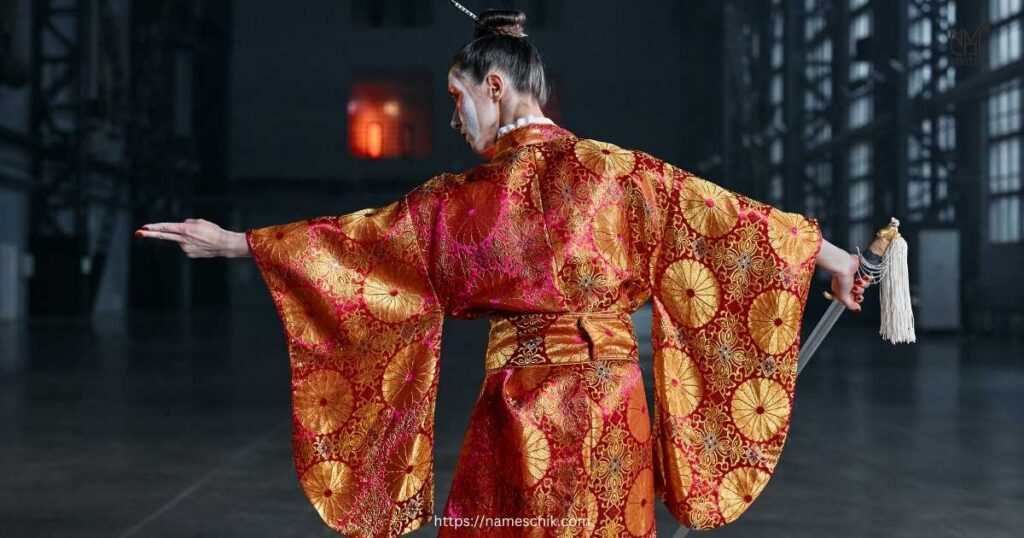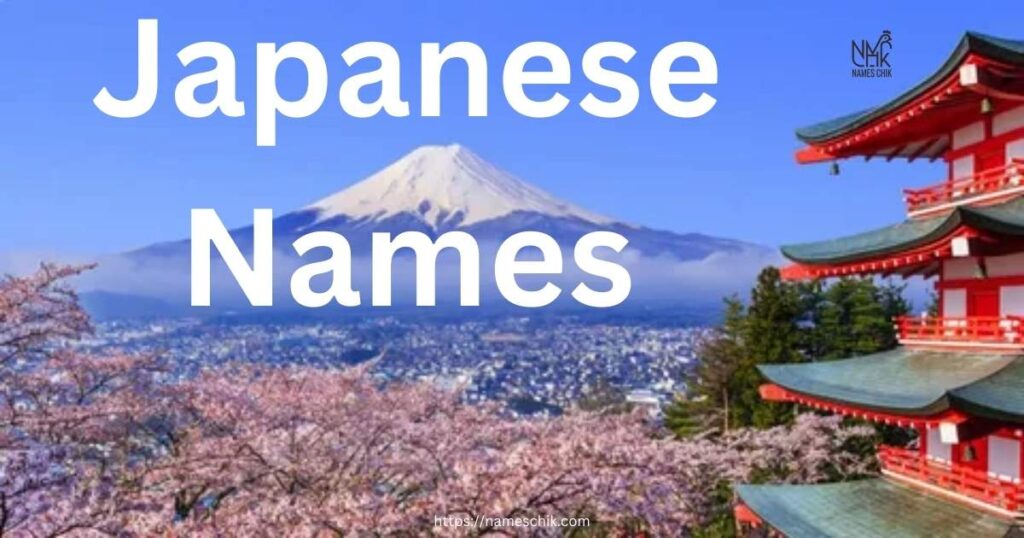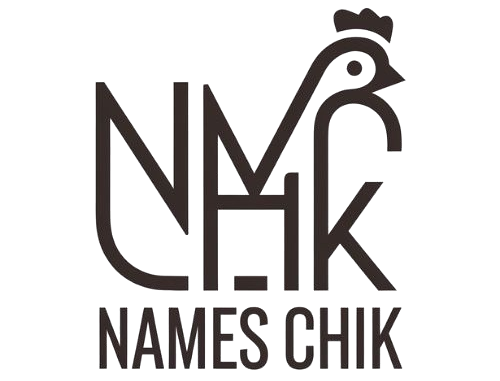Exploring the intriguing world of Japanese names that mean death opens a window into the rich tapestry of Japanese culture and language. Death, while often considered a taboo subject, carries various meanings and associations in Japan. Many names reflect the deep philosophical perspectives surrounding mortality, making them both unique and thought-provoking. Whether derived from historical contexts or literary references, these names can evoke powerful emotions and insights.
In this article, we will delve into some of the most fascinating Japanese names that mean death. From traditional names that have stood the test of time to more contemporary choices, each name tells a story. Understanding these names allows us to appreciate the cultural nuances and beliefs that shape the way death is perceived in Japanese society. Join us as we uncover the meanings and significance behind these Japanese names that mean death, and discover how they resonate with themes of life and existence.
Female Japanese Names that mean Death

Japanese girls’ names meaning death
- Shiori (詩織) – “Poem weave,” representing the intertwining of life and death through art.
- Mikage (三影) – “Three shadows,” symbolising the presence of the past, present, and future in life’s cycle.
- Kuroha (黒羽) – “Black feather,” suggesting a connection to the afterlife and the spiritual world.
- Kiyomi (清美) – “Pure beauty,” reflecting the beauty found in mourning and loss.
- Yuki (雪鬼) – “Snow demon,” indicating a transformation associated with death and rebirth.
- Reika (玲香) – “Lovely fragrance,” embodying the memories of those who have passed.
- Natsuki (夏希) – “Summer hope,” evoking the hope that remains after loss.
- Aoi (葵) – “Hollyhock,” a flower associated with funerals in Japan.
- Chiyo (千代) – “Thousand generations,” signifying the importance of ancestry and remembrance.
- Kurumi (胡桃) – “Walnut,” often linked to the heart and emotions, including grief.
- Sakura (桜) – “Cherry blossom,” symbolising the transient beauty of life and death.
- Kuroko (黒子) – “Black child,” representing the hidden aspects of life and mortality.
- Yume (夢) – “Dream,” reflecting the spiritual connection to those who have departed.
- Hikari (光) – “Light,” suggesting hope amidst the darkness of death.
- Sui (水) – “Water,” symbolising the flow of life and the inevitability of death.
- Mizuki (瑞希) – “Auspicious hope,” representing positive memories of those lost.
- Anzu (杏) – “Apricot,” associated with the cycle of life and seasonal changes.
- Kiri (霧) – “Mist,” implying the unknown after death and the passage to the spiritual realm.
- Yasuko (康子) – “Child of peace,” reflecting the calmness after loss.
- Kagami (鏡) – “Mirror,” symbolising reflection on one’s life and connections to the deceased.
- Rin (凛) – “Dignified,” evoking a sense of respect and honour for those who have passed.
- Kanna (神奈) – “Divine power,” linking names to spiritual meanings of death.
- Tomiko (富子) – “Child of fortune,” emphasising the importance of legacy.
- Akemi (明美) – “Bright beauty,” reminding us of the beautiful moments shared with the deceased.
- Yuuki (勇気) – “Courage,” encouraging resilience in the face of loss.
- Tomoko (智子) – “Wise child,” reflecting the knowledge gained from loss.
Male Japanese Names that mean Death

Japanese boys’ names meaning death
- Takeru (武) – “Warrior,” symbolising strength in confronting mortality.
- Kage (影) – “Shadow,” representing the unseen presence of ancestors.
- Riku (陸) – “Land,” connecting life and death through the earth.
- Shin (真) – “Truth,” reflecting the inevitable truth of life and death.
- Haruto (陽翔) – “Sun flying,” evoking a sense of freedom after passing.
- Reiji (礼二) – “Respect,” honouring those who have left this world.
- Ichiro (一郎) – “First son,” emphasising lineage and the significance of heritage.
- Jiro (次郎) – “Second son,” symbolising the continuation of family and remembrance.
- Masaru (勝) – “Victory,” suggesting overcoming the fear of death.
- Kiyoshi (清) – “Clear,” representing purity in life and the acceptance of death.
- Sora (空) – “Sky,” symbolising the infinite journey after life.
- Kaito (海斗) – “Ocean flying,” reflecting vastness and depth related to the afterlife.
- Hiroshi (広志) – “Generous,” indicating the generosity of spirit in remembering the deceased.
- Yuu (優) – “Gentle,” evoking the softness of memories associated with loss.
- Ryu (竜) – “Dragon,” symbolising power and the transformation after death.
- Akira (明) – “Bright,” suggesting the enlightenment that comes from understanding mortality.
- Fumio (文雄) – “Literary hero,” representing storytelling and the legacy left behind.
- Kazuki (和樹) – “Peace tree,” symbolising life’s transience and the continuity of nature.
- Toshiyuki (俊之) – “Talented,” honouring those whose talents remain in memory.
- Noboru (昇) – “To ascend,” reflecting the journey of the soul after death.
- Taiki (大輝) – “Great radiance,” suggesting the enduring spirit of the departed.
- Hiroto (大翔) – “Big flying,” indicating the freedom found in letting go.
- Yoshinori (良則) – “Good rule,” reflecting moral lessons learned from loss.
- Takeo (武男) – “Warrior man,” highlighting strength through mourning.
- Toshiro (俊郎) – “Talented son,” symbolising the gifts left behind by those who have passed.
Read More: Funny Names for Blooket in 2024
Best Japanese Names That Mean Death
Notable names in Japanese that mean death
- Shinju (真珠) – “Pearl,” symbolising beauty emerging from loss.
- Mikoto (御子) – “Divine child,” representing a connection to the spiritual world.
- Kurumi (胡桃) – “Walnut,” often linked to emotional depth and memory.
- Satsuki (皐月) – “May,” a month associated with new beginnings and remembrance.
- Rika (理香) – “Logic fragrance,” reflecting clarity in understanding mortality.
- Tsubaki (椿) – “Camellia,” a flower often linked to funerals in Japan.
- Yoru (夜) – “Night,” symbolising darkness associated with death.
- Kuro (黒) – “Black,” evoking the symbolism of mourning and loss.
- Yume (夢) – “Dream,” linking to the spirit world and memories.
- Aki (秋) – “Autumn,” a season reflecting the cycle of life and death.
- Hana (花) – “Flower,” representing beauty even in loss.
- Shiori (詩織) – “Poem weave,” symbolising the intertwining of life and death.
- Reiko (礼子) – “Child of gratitude,” emphasising remembrance.
- Chihiro (千尋) – “Thousand fathoms,” linking to deep reflections on life.
- Saki (咲) – “Blossom,” representing renewal amidst grief.
- Hikari (光) – “Light,” evoking hope in darkness.
- Yuki (雪) – “Snow,” symbolising purity in loss.
- Aoi (葵) – “Hollyhock,” often associated with funerals.
- Keiko (恵子) – “Child of blessing,” emphasising positive memories.
- Tsubasa (翼) – “Wing,” suggesting freedom in the afterlife.
- Rin (鈴) – “Bell,” symbolising remembrance and mourning.
- Kazumi (和美) – “Harmonious beauty,” reflecting balance in life and death.
- Hanae (花恵) – “Flower blessing,” evoking positive memories.
- Nami (波) – “Wave,” symbolising the ebb and flow of life.
- Kaori (香り) – “Fragrance,” suggesting lasting memories of loved ones.
Unisex Japanese Names that mean Death

Names of all genders that relate to death
- Aoi (葵) – “Hollyhock,” symbolising beauty associated with funerals.
- Kage (影) – “Shadow,” representing the unseen presence of the departed.
- Hikari (光) – “Light,” evoking hope amidst mourning.
- Yuki (雪) – “Snow,” symbolising purity and tranquillity in loss.
- Natsu (夏) – “Summer,” reflecting warmth and memories of those who have passed.
- Sora (空) – “Sky,” representing the vastness of the afterlife.
- Taku (拓) – “Expand,” symbolising growth through loss.
- Yume (夢) – “Dream,” linking to spiritual connections with the deceased.
- Rei (玲) – “Lovely,” reflecting the beauty in memories.
- Mizuki (瑞希) – “Auspicious hope,” suggesting positive associations with death.
- Kaoru (薫) – “Fragrance,” evoking the lingering essence of loved ones.
- Kira (輝) – “Radiance,” symbolising light after darkness.
- Kiyo (清) – “Pure,” reflecting clarity and acceptance of mortality.
- Tama (珠) – “Jewel,” representing the preciousness of memories.
- Haru (春) – “Spring,” symbolising rebirth and renewal after loss.
- Kou (光) – “Light,” indicating hope amidst darkness.
- Ren (蓮) – “Lotus,” representing beauty arising from murky waters.
- Ami (亜美) – “Asia beauty,” symbolising interconnectedness in the cycle of life.
- Shin (心) – “Heart,” evoking deep emotions associated with loss.
- Kaze (風) – “Wind,” symbolising the transience of life.
- Fuyu (冬) – “Winter,” reflecting the stillness associated with death.
- Rin (凛) – “Dignified,” highlighting respect for those who have passed.
- Aki (秋) – “Autumn,” symbolising change and the passage of time.
- Kyou (響) – “Echo,” representing the lasting impact of memories.
- Riku (陸) – “Land,” connecting life and death through nature.
FAQ’s
What is the Japanese name for the bringer of death?
The Japanese name often associated with the bringer of death is Shinigami (死神), which literally means “death god.” This term is a key part of Japanese Names that mean Death, emphasising the cultural significance of mortality.
What is a dark Japanese name?
A dark Japanese name could be Kurumi (胡桃), which means “walnut,” but it can also evoke feelings of melancholy and mystery. Such names often reflect the symbolism of darkness in names linked to Japanese Names that mean Death.
What Japanese name means sad?
The Japanese name Kanashii (悲しい) means “sad,” capturing emotions tied to loss and remembrance. This illustrates how Japanese Names that mean Death can convey deep feelings related to mourning.
What Japanese name means goddess of death?
The name Jizō (地蔵) refers to the guardian of deceased children and can be associated with the goddess of death in folklore. It’s an example of Japanese Names that mean Death, reflecting beliefs about the afterlife.
What is a Japanese god of death?
The Japanese god of death is often represented by Enma (閻魔), who judges the souls of the deceased. He embodies themes central to Japanese Names that mean Death and the cultural significance of death in Japanese mythology.
Conclusion
In exploring Japanese Names that mean Death, we uncover a rich tapestry of cultural significance and symbolism. These names reflect the profound understanding of mortality in Japanese culture, often linked to the life cycle, honouring ancestors, and the spiritual meanings associated with death. From female Japanese Names that mean Death to male Japanese Names that mean Death, each name carries a unique story and emotional depth. Unisex names related to death highlight the universal nature of loss and remembrance, emphasising the importance of acknowledging life’s transience.
The meaning of death in Japanese transcends mere language; it intertwines with mythology and traditions. Names like Shinigami and Jizō not only symbolise death but also serve as reminders of the afterlife and the cycle of life. As we delve into Japanese names that mean death, we appreciate their poetic qualities and the emotional weight they carry, evoking reflections on life, loss, and the human experience.

